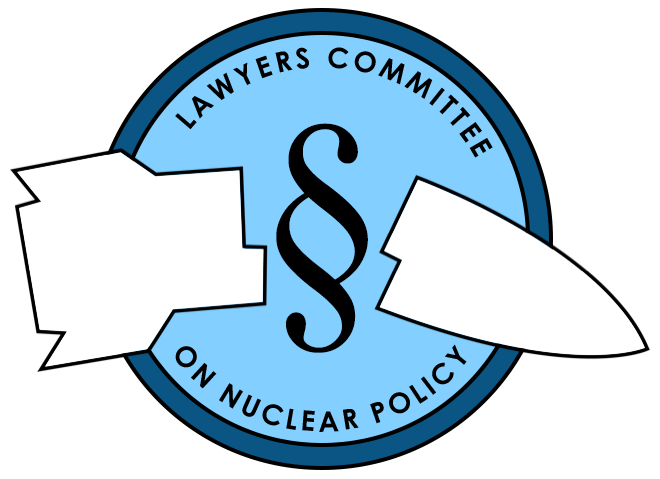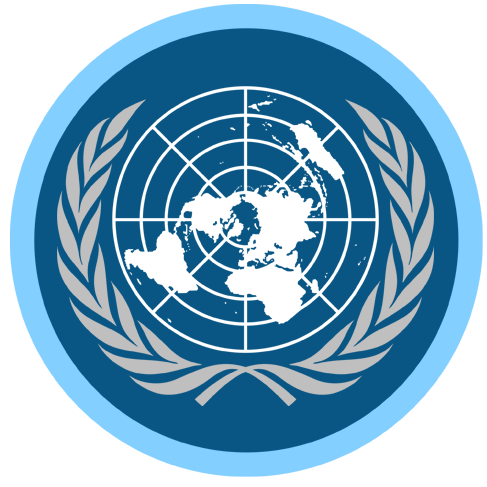Peter Weiss: I Was 20 in 1945
United Nations Academic Impact: J. Michael Adams Lecture and Conversation
Mrs. Adams, I am honored to speak today in your husband’s memory, who had done so much for peace and the UN.
I was born in Vienna, Austria, on December 8, 1925 and I owe the imaginative title of this talk, “I was 20 in 1945,” to Ramu Damodaran. He evidently believes that one way to tell the story of the United Nations is to tell the story of my life, so you are getting two for the price of one.
In 1945 my last posting for the US army was on Long Island, not the one in New York state, but the little one in Boston Harbor. It was shared by the reception center for German rocket scientists to which I was assigned and by a psychiatric center run by the state of Massachusetts. It was difficult, at times, to tell the inhabitants of one from those of the other. But as of August 9, 1945, the attention of my army colleagues and myself was focused on the news from Japan about the new weapon called the atom bomb. As you know, it was dropped first on Hiroshima and a few days later on Nagasaki and instead of shame at the number of people, mostly innocent civilians, who died and how they died, we felt relief that the war would soon be over and we would not be sent to Japan to do battle with the Japanese army.
Decades later historians argued, albeit not uniformly, that Japan was ready to surrender in any case, so that there was no justification to unleash the horror of the atom bomb. That was, however, the beginning of my lifelong commitment to work for a nuclear weapons free world.
It was also the beginning of the United Nations and the enactment of its charter and its principal mission, to save succeeding generations from the scourge of war. True to the mission, the first resolution adopted by the UN’s General Assembly established a commission to study the discovery of the atom and to limit the uses of the atom strictly to peaceful ones. It also provided – and this has been largely forgotten – for the punishment of violators of this limitation as war criminals.
There are years which, if you have lived through them, you will never forget. 1945 was such a year. It was one in which it seemed that a gigantic hand was flipping the world from horror to hope, from war to peace, from dictatorship to democracy, from colonialism to decolonization, from death camps to refugee camps, from the reality of economic exploitation to the dream of abundance, from racism to human rights, but not yet for equal rights for women or for the LGBTQI communities.
Fast backward: When my parents and I arrived in New York from Europe in 1941, they enrolled me in Straben Mueller Textile, a technical high school, on the theory that in antisemitic pogroms intellectuals were always the first to go. But I fooled them the next year by enlisting in St. John’s College in Annapolis, known as the Great Books school. To give you an idea of how things have changed in the last fifty years, I got a full tuition scholarship worth three hundred dollars.
How does the UN fit into this? Here’s how. As I have mentioned, the UN came into being in 1945 following WWII for one principal purpose: To prevent another war. But, understandably, that was a purpose that could not be achieved without first making progress in achieving the above-mentioned norms and values. So the political elements of the UN, General Assembly and Security Council, soon found themselves surrounded by an alphabet soup of UN or UN related agencies and institutions: UNESCO, FAO, WHO, ECOSOC, to name just a few.
Later, in my capacity as International trademark lawyer, I had some dealings with another UN related agency, WIPO (World Intellectual Property Organization). It has a big building in Geneva and a gorgeous view of Mont Blanc.
In and after 1945 something similar to what was happening to the UN was also happening to me. I was sort of an unofficial staff person for two remarkable men, Stringfellow Barr and Scott Buchanan, the former president and dean of St. John’s. They had resigned after winning a prolonged tiff with the US Naval Academy across the street, which thought it had a better use for the college’s beautiful campus. Barr and Buchanan had also received a million-dollar grant from an heiress – a respectable sum in that era – to create the Foundation for World Government, which they did. But, after some serious consulting with experts here and abroad they came to the conclusion that world government with very rich and very poor countries was a pipe dream. Taking a leaf out of UN’s book they instead issued a dozen pamphlets on how to achieve a more equitable world. They urged both the US and the UN to at least provide technical assistance toward economic development as technical assistance came to be called. Barr produced a pamphlet entitled “Let’s Join the Human Race” in which he pointed out that the UN budget for technical assistance to what were then called underdeveloped countries was about the same as New York City’s budget for street cleaning.
Upon graduating from law school in 1952 I was asked by the foundation to head up a new organization called IDPA, for International Development Placement Association. My job was to make arrangements for young Americans with technical skills to provide those skills where they were needed in Africa, Asia or Latin America, while being compensated at local wage rates. I cannot now imagine how this tiny organization could have made a difference in curing the equalization deficit between developed and underdeveloped countries. But it made a small contribution in demonstrating that development assistance by far larger organizations, like the US Peace Corps and the UN Development Program were feasible. And some of those active with IDPA, like the late Pennsylvania Senator Harris Wofford, did wind up in the Peace Corps.
Economic development work had its unexpected rewards. In 1954 I had the pleasure of escorting Ashadevi Aryanakom, a niece of Mahatma Gandhi, on part of her speaking tour about village development. It included the cafeteria of the University of Wisconsin where I met my predecessor in this lecture series and beloved wife of 63 years, Cora Weiss.
One of the things Cora and I worked on most intensively together was decolonization. Africa, in those days, had produced a team of giants the likes of which one would be hard pressed to find anywhere in the world today: Kwame Nkrumah of Ghana, Azikiwe of Nigeria, Eduardo Mondlane of Mozambique, Amilcar Cabral of Guinea Bissau and Cape Verde, Tom Mboya of Kenya, Julius Nyerere of Tanganyika, and last but certainly not least Nelson Mandela and Oliver Tambo of South Africa. We met them all. Some of them stayed with us in Riverdale and we drove them to the UN to deliver their freedom-seeking speeches as anti-colonial petitioners.
With the near end of colonialism, the American Committee on Africa (ACOA) of which I was president, intensified its opposition to apartheid in South Africa. Seeing Nelson Mandela, the world’s most famous prisoner, walk out of prison a free man on live television was one of those rare occasions for which emotion lacks adequate resources. Later, in person, helping blacks vote for the first time in a national election, is another occasion one would not like to have missed. Everything is not perfect in today’s South Africa, but when and where is it ever? I remember returning from a trip to Africa and being asked, on a radio talk show whether Africa was ready for democracy, to which I replied “Are we?” The interrogator had no idea what I was talking about.
Africa was serious business, as the UN also discovered, but there were lighter moments. After Sékou Touré ascended to the presidency of Guinea from the presidency of the railway workers union, the American Committee on Africa gave a reception for him. I introduced him to Governor Harriman, whose family had owned the Union Pacific railroad and he said to Sékou Touré, in perfect French, “I am delighted to meet you, Mr. President. I am an old railroad man myself.”
When I was demobbed from the army in 1946, I received an offer I could not refuse. James Stewart Martin, one of the college’s most popular tutors, as we called our professors, had taken a leave from teaching and moved to Washington to join the Board of Economic Warfare. When the war in Europe ended, he was sent to Berlin at the ripe old age of 32 to head up the Decartelization Branch of OMGUS, the Office of Military Government United States. Knowing that I was fluent in German, he asked if I would join his staff as a translator/interpreter. The job came with a small private house and an occasional jeep with a German driver. In those days the word “cartel” did not mean a Mexican drug enterprise, but an economic trust of the kind the US policy liked to break up. Specifically, it referred to the huge German conglomerates which had supported Hitler’s rise to power and his staying there. Decartelization did not turn out to be a great success, but it produced a fascinating book by Jim Martin, with a title taken – whence else? From Shakespeare – “All Honorable Men”.
Lawyers are prone to think that the cases they win, or almost win, can change the world. But not always. In 1980, I won the Filartiga case. It established for the United States the principle of universal jurisdiction, which holds that some crimes or torts are so heinous that that they can be prosecuted in a country other than the one where they were committed. For a quarter of a century Filartiga became the most cited and most litigated human rights case in the world. Then the Supreme Court of the United States reversed it.
Also in 1980, my colleagues and I played a role in obtaining from the International Court of Justice a ruling that nuclear weapons are generally illegal and must be abolished. That ruling is still in force, but the nuclear weapons states pay no attention to it. So it goes, as Kurt Vonnegut used to say. But all is not lost. There are stirrings everywhere, in the courts and in the streets, that confirm Martin Luther King’s belief that the arc of history bends toward justice. Let us give it time to complete its trajectory and help it to do so. And let us not forget that the United Nations is there to lead the charge.

